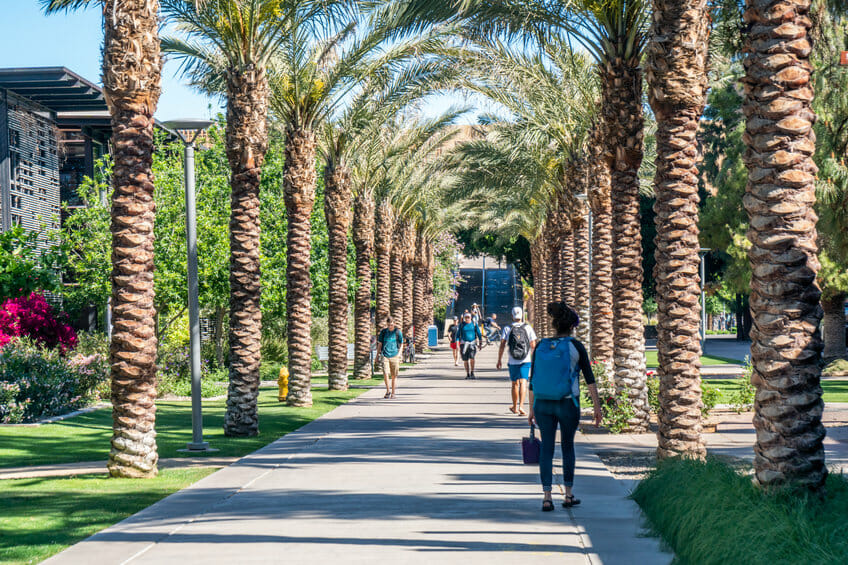Arizona State University’s Tempe campus has had the highest rate of sexual violence crimes of all its campuses for three consecutive years, according to the university’s annual Security and Fire Safety Report.
The report, which is managed by the ASU Police Department, shows that, since 2018, the Tempe campus has had 30 cases of rape, 33 cases of fondling and three cases of statutory rape, more than any other of the university’s four campuses. The report only includes crimes that occurred on university property and were reported to the university or police.
The report also includes the number of unfounded or baseless cases of any crime for each campus. Since 2018, there have been a total of six unfounded cases on the Tempe campus.
Sexual violence crimes are the second most common cases reported on the Tempe campus, behind burglaries, according to the report. However, because of the sensitive nature of sexual violence crimes, many cases still are not reported.
READ ALSO: Here’s how ASU Downtown Phoenix has transformed the city
“Stigma and shame caused by unhealthy societal messages around sex and sexual violence contribute to a lack of reporting,” said Kimberly Frick, Associate Director of ASU’s Sexual and Relationship Violence Prevention Program.
Nearly 80 percent of rapes and sexual assaults go unreported, according to a Justice Department analysis of violent crime in 2016.
At ASU, students have resources available for when they want to report a crime but are not always met with adequate response.
“Victims and survivors of sexual assault have the option of reporting the incident to the university or to the police. Someone can make the decision to report to the university, but it will not open a police investigation,” Frick said.
Sexual violence crimes are common on college campuses, with “13% of all students experiencing rape or sexual assault through physical force, violence, or incapacitation (among all graduate and undergraduate students),” according to a study conducted by the Rape, Abuse, & Incest National Network, or RAINN.
In 2019, ASU administered the American College Health Association-National College Health Assessment, a study on sexual and relationship violence experiences in the university’s student community, and found that “6.2% of female ASU students, 1.1% of male ASU students and 4.9% of gender non-binary ASU students reported they experienced attempted and/or completed sexual violence in the last 12 months.”
“Sexual violence is common and our society at large, and college-age individuals experience higher rates of sexual violence,” Frick said.
However, according to RAINN, women in the age range of 18-24 who are not in college are actually 20% more likely to experience violence than their peers who are in college. On the other hand, men who are in college are 78% more likely to experience sexual violence than their peers of the same age who are not in college.
While ASU students have resources, they wish for the university to have better follow-through after sexual violence crimes have been reported.
“I’ve heard so many stories of sexual assault and harassment, and some get reported, but most don’t because the university doesn’t do much to help,” said Rachelle Davila, a student on the Tempe campus.
Programs like the Sexual and Relationship Violence Prevention Program provide students with resources for sexual violence crimes and encourage them to use them, but, at the end of the day, cannot force them to reach out.
“Our message to victims and survivors is that it is their choice whether or not they want to access resources,” Frick said. “We encourage victims and survivors to connect with support in whatever way that is most helpful for them, whether it is through university resources, community resources, or talking with a peer.”




